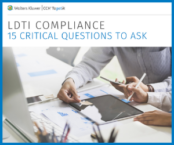SAP Regulatory Compliance
Filter By
Browse By
- SAP Analytics and AI
- SAP Application Development and Integration
- All SAP Application Development and Integration
- SAP ABAP
- SAP ABAP Development Tools
- SAP ABAP Test Cockpit
- SAP API Management
- SAP BAPI
- SAP Basis
- SAP BRF
- SAP Business Application Studio
- SAP CMS
- SAP Design Studio
- SAP Development Tools
- SAP DevOps
- SAP EAI
- SAP EDI
- SAP Extension Suite
- SAP Fiori
- SAP Fiori Elements
- SAP Integration Suite
- SAP Low Code Application Development
- SAP Low Code Automation
- SAP Netweaver
- SAP Release Management
- SAP UI5
- SAP Web Application Server
- SAP Web IDE
- SAP Business Process Management
- SAP Center of Excellence
- SAP CIO
- SAP Customer Experience
- SAP Data and Data Management
- All SAP Data and Data Management
- SAP BW
- SAP BW/4HANA
- SAP Crystal Reporting
- SAP Data Archiving
- SAP Data Center
- SAP Data Governance
- SAP Data Integration
- SAP Data Migration
- SAP Data Quality
- SAP Data Services
- SAP Data Strategy
- SAP Data Visualization
- SAP Data Warehouse Cloud
- SAP DMS
- SAP Document Control
- SAP EIM
- SAP ETL
- SAP ETL Tools
- SAP HANA
- SAP HANA Administration
- SAP HANA Deployment Infrastructure
- SAP HANA Studio
- SAP Master Data
- SAP Master Data Governance
- SAP MDM
- SAP Enterprise Architect
- SAP Enterprise Asset Management
- SAP ERP
- SAP Finance
- All SAP Finance
- SAP Accounting
- SAP AR AP
- SAP Asset Accounting
- SAP Billing Systems
- SAP BPC
- SAP BRIM
- SAP Cash Management
- SAP Central Finance
- SAP Controlling
- SAP COPA
- SAP Cost Center Accounting
- SAP e-invoicing
- SAP FICO
- SAP Finance Automation
- SAP Financial Closing Cockpit
- SAP Financial Consolidation
- SAP Financial Planning
- SAP FX Risk
- SAP General Ledger
- SAP Global Tax Management
- SAP Hyperion
- SAP Order to Cash
- SAP Payment Processing
- SAP Profitability Analysis
- SAP Rebate Management
- SAP S/4HANA Finance
- SAP Universal Journal
- SAP Governance Risk and Compliance
- SAP Human Capital Management
- SAP Intelligent Technologies
- SAP Platform and Technology
- All SAP Platform and Technology
- SAP Business Technology Platform
- SAP Cloud Connector
- SAP Cloud Integration Platform
- SAP Cloud Migration
- SAP Cloud Platform
- SAP Cloud Providers
- SAP Cloud Strategy
- SAP Container Platform
- SAP Digital Asset Management
- SAP Digital Integration Hub
- SAP Digital Signature
- SAP HANA Enterprise Cloud
- SAP HEC
- SAP Hyperscalers
- SAP Infrastructure
- SAP Messaging
- SAP Smart Forms
- SAP Quality and Testing
- SAP Security
- SAP Spend Management
- SAP Supply Chain Management
- All SAP Supply Chain Management
- SAP APO
- SAP Asset Management
- SAP Business Network
- SAP Digital Manufacturing Cloud
- SAP Digital Twin
- SAP EWM
- SAP IBP
- SAP Inventory Management
- SAP Label Printing
- SAP Logistics
- SAP Manufacturing
- SAP Manufacturing Automation
- SAP MES
- SAP MII
- SAP MM
- SAP MRO
- SAP MRP
- SAP Order Management
- SAP Plant Maintenance
- SAP PLM
- SAP Production Planning
- SAP S&OP
- SAP SD
- SAP SPM
- SAP Supply Chain Planning
- SAP Track and Trace
- SAP Transportation Management
- SAP System Administration
What is SAP Regulatory Compliance?
Every company must work with applicable regulations — laws, rules, and policies — making regulatory compliance a key function of governance, risk, and compliance (GRC) departments. Failure to comply with regulations can bring significant financial penalties. Many lines of business within a company may be tasked with regulatory compliance.
What is SAP Regulatory Compliance?
Every company must work with applicable regulations — laws, rules, and policies — making regulatory compliance a key function of governance, risk, and compliance (GRC) departments. Failure to comply with regulations can bring significant financial penalties. Many lines of business within a company may be tasked with regulatory compliance.
- Finance departments work with accounting and tax compliance. Prominent regulations in this area include the Sarbanes-Oxley Act (SOX). There are also accounting standards such as the International Financial Reporting Standards (IFRS) for most of the world and Generally Accepting Accounting Principles (GAAP) in the United States.
- Marketing and sales departments must comply with laws, rules, and policies relating to customer data. Notably, the European Union’s General Data Protection Regulation (GDPR) puts restrictions on the collection and use of personal data. In the United States, California and other states have enacted similar laws, and it is likely that more states will follow suit.
- Human resources (HR) departments face regulations around workplace conduct, employee rights, and employee data. These laws and policies can enforce standards around discrimination and harassment, as well as terms of employment. As with customer data, employee data is subject to GDPR and similar laws.
- Operational areas of the business are subject to safety and environmental regulation. In the United States, the Occupational Safety and Health Administration (OSHA) enforces workplace safety regulations. Environmental regulations are growing in importance and often pertain to heavy industries.
Regulatory compliance is handled typically in various areas of GRC. A company like Vertex helps companies with financial and tax compliance. Appsian Security provides data privacy and SOX compliance solutions. GRC-focused companies such as Fastpath offer tools to assist with regulatory compliance.
Key Considerations for SAPinsiders:
- The more areas a company touches — both from a business perspective and geographically — the more regulations that company faces. That creates complicated challenges for regulatory compliance. Further challenges arise around rapidly changing regulations that may have a significant impact on how a company operates.
- When it comes to technology, compliance tools, such as data privacy and protection, are among the most commonly used and being evaluated in our most recent GRC research. Companies are looking to automation to help with regulatory compliance.
- Highlighting the impact on location when it comes to regulatory compliance, 60% of EMEA respondents chose GDPR as a top regulatory priority in that same GRC research vs. 47% of non-EMEA respondents.
14 results
-

Fast-Track CSRD Compliance: Best practices on how to manage CSRD implementation
Published: 21/October/2024
Reading time: 1 min
The CSRD and EU Taxonomy require significant implementation efforts for companies in the EU, with mandatory disclosures needing careful understanding and tailored execution, covered in a document detailing management, reporting infrastructure, and value creation.
-

Security Compliance and the SOCI Act: Securing Our Critical Infrastructure
Published: 22/October/2023
Reading time: 1 min
Our critical infrastructure faces a multitude of threats, more than ever before. From power grids and transportation systems to healthcare and financial networks, safeguarding these vital systems is paramount. In this blog, CompliantERP explores the SOCI Act and the changes surrounding critical infrastructure security and how the legislation applies to ERP systems, along with some…
-

Regulators Mull Climate Change Risk Disclosure Rules
Published: 12/January/2022
Reading time: 2 mins
More regulators are considering requiring companies to disclose the potential impact of climate change on their business and the mitigation measures they are putting in place. For example, the U.S. Securities and Exchange Commission (SEC) is developing rules for companies to disclose their exposure to climate change risk and detail climate change mitigation plans…
-
-

- SAP Regulatory Compliance
 Premium
Premium
Video: Digital River Talks Global Ecommerce Payments and Compliance Trends
by Ogo Nwanyanwu, Research Director, SAPinsider Financial transaction compliance is a complex process that can impact an organization’s ability to provide customers with a positive ecommerce experience. Creating a positive ecommerce customer experience is very important for organizations to grow digital business models globally in the current operating environment. Finance transactions such as cross-border ecommerce...…
-

- SAP Regulatory Compliance
 Premium
Premium
How Microsoft enabled a highly regulated SAP landscape to support its new MS-Federal entity
In 2020, Microsoft implemented Microsoft Federal (MS-Federal) to bring all U.S. Government critical customer functions under the same organizational umbrella. To support the newly created MS-Federal entity, Microsoft carved out a complex dedicated landscape into Azure Govt Cloud. This migration represented Microsoft’s first Greenfield deployment of SAP S/4HANA at Microsoft, with end-to-end scope, as a…
-

Support Regulatory Compliance Across Your SAP Landscape with SAP Data Privacy Integration
Published: 28/January/2021
Reading time: 13 mins
While it is important for businesses to ensure data privacy to gain the trust of both customers and business partners, the protection of this data is critical for adhering to the regulations that countries are introducing at a growing rate, with more data privacy bills introduced in 2020 compared to 2019. These regulations — such…
-

Ebook: LDTI Compliance: 15 Critical Questions to Ask
Published: 01/July/2020
Reading time: 1 min
Long Duration Targeted Improvements (LDTI) is the most complex set of FASB standards that the modern insurance industry has ever seen—learn the right questions to ask! Find other insightful content from Wolters Kluwer | CCH Tagetik on their Vendor Showcase
-
-

Advanced Compliance Reporting (ACR)
Published: 20/April/2020
Reading time: 9 mins
SAP S/4HANA for advanced compliance reporting makes taxes easier to manage, file, and submit, especially for companies that deal in many different countries and with varying tax requirements. SAP's solution help simplify the complex tax submission process that most multinational businesses face. In this article an SAPinsider Expert will walk you through how to configure,…
-

8 Reasons for Compliance Reporting
Published: 06/April/2020
Reading time: 1 min
In this white paper, readers can learn how VAT reporting can help your business grow with confidence. While VAT reporting can often be time-consuming and demanding of niche knowledge, tax technology can simplify the process. Download our white paper to learn more about how automating your VAT reporting can enhance processes to meet today’s VAT…
-

Complying with Data Protection Regulations
Published: 13/August/2019
Reading time: 12 mins
Data protection regulations are on the rise, with the California Consumer Privacy Act (CCPA) of 2018, due to go into effect in January 2020, one of the more recent examples. CCPA in combination with the already existing European General Data Protection Regulation (GDPR) is set to have a major impact on how businesses handle their…
Become a Member
Unlimited access to thousands of resources for SAP-specific expertise that can only be found here.
Related Vendors
Your request has been successfully sent

